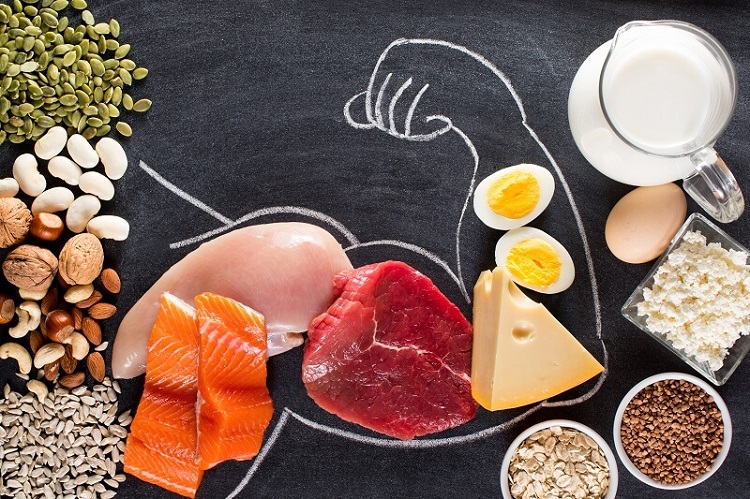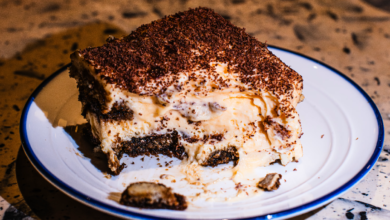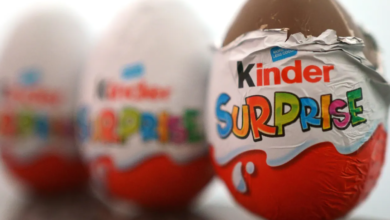Muscle Food: The Ultimate Guide to Building Muscle Through Smart Eating

Discover everything you need to know about muscle food and how it helps build strength, support fitness goals, and enhance recovery. Expert tips, meal ideas, and FAQs included.
What is Muscle Food?
Muscle food refers to nutrient-rich foods that support muscle growth, recovery, and overall performance. These aren’t your average meals; muscle foods are packed with high-quality protein, essential fats, and key micronutrients your body needs to repair and grow muscle tissue. Whether you’re an athlete, a regular gym-goer, or just looking to tone up, muscle food is the foundation of your progress.
When we talk about muscle food, we’re not only referring to grilled chicken and protein shakes. The term includes a wide array of whole foods such as lean meats, legumes, nuts, seeds, fish, dairy, and even certain vegetables. All of these play a unique role in fueling the body for performance and ensuring it recovers efficiently.
Why Muscle Food Matters
Muscle food matters because muscles don’t grow in the gym—they grow in the kitchen. Exercise is the stimulus, but without the right fuel, your efforts might fall flat. Eating the right muscle food helps improve muscle protein synthesis, supports hormone regulation, and accelerates recovery. It’s not just about getting more calories; it’s about getting the right ones.
Additionally, eating for muscle isn’t just about aesthetics. Muscle mass is crucial for metabolic health, bone density, injury prevention, and long-term mobility. As we age, muscle naturally declines, which makes muscle food even more essential.
Key Nutrients in Muscle Food
Protein: The Building Block of Muscle
Protein is the most important macronutrient when it comes to building muscle. It’s made up of amino acids, which are the raw materials your body uses to repair muscle fibers damaged during training. Foods like chicken breast, lean beef, eggs, tofu, Greek yogurt, and lentils are all top-tier muscle foods because of their high protein content.
When choosing protein-rich muscle food, aim for variety. Animal proteins provide complete amino acid profiles, while plant-based proteins like quinoa and chickpeas can still be effective when eaten in combinations.
Healthy Fats: Fuel and Hormone Support
Fats are often misunderstood, but they’re crucial for hormonal health, including testosterone production—a key hormone for muscle growth. Avocados, olive oil, nuts, seeds, and fatty fish like salmon are excellent sources of healthy fats. They also keep you full and support overall nutrient absorption.
Unlike trans fats or excess saturated fat, the fats found in muscle food help optimize the balance of your diet without compromising your health. A balanced intake helps you perform better both mentally and physically.
Carbohydrates: Energy for Training
Carbs fuel your workouts and help replenish glycogen stores after exercise. Without them, your energy and performance take a hit. Brown rice, oats, sweet potatoes, and whole grains are perfect examples of muscle food that delivers sustainable energy.
Don’t shy away from carbs when you’re training hard. The right type and timing can significantly enhance your recovery and muscle gains.
Micronutrients: The Unsung Heroes
Vitamins and minerals might not seem as sexy as protein shakes, but they’re absolutely vital. Iron supports oxygen transport, magnesium aids in muscle contraction, and zinc supports recovery. Foods like spinach, berries, almonds, and eggs provide these critical nutrients.
Don’t overlook the importance of colorful vegetables and fruits in your muscle food list. They often contain antioxidants that reduce inflammation and aid muscle repair.
Top Muscle Foods to Include in Your Diet

Chicken Breast
Lean, high in protein, and versatile in recipes. It’s a muscle-building staple that fits easily into any meal plan.
Eggs
Whole eggs provide a complete amino acid profile and are also rich in healthy fats and vitamins. Perfect for breakfast or post-workout meals.
Salmon
A powerful source of protein and omega-3 fatty acids. Helps reduce muscle soreness and improve heart health.
Quinoa
A plant-based complete protein that’s also rich in fiber and essential minerals. Great for vegans and vegetarians.
Greek Yogurt
Packed with protein and probiotics, it supports gut health and muscle repair. A convenient snack or breakfast option.
Cottage Cheese
Slow-digesting casein protein makes this an excellent night-time snack to support overnight recovery.
Lentils
A budget-friendly plant protein loaded with fiber and essential nutrients. Ideal for meatless meals.
Sweet Potatoes
Rich in complex carbs and fiber. Offers long-lasting energy for your workouts.
Spinach
High in iron and magnesium. Adds a powerful nutritional punch to salads, smoothies, and omelets.
Almonds
Contain healthy fats, vitamin E, and protein. Great for snacking or adding crunch to meals.
How to Plan a Muscle Food Diet
Timing Your Meals
When it comes to eating muscle food, timing can enhance its effectiveness. Pre-workout meals should include a balance of carbs and protein for fuel. Post-workout meals should be high in protein and include fast-digesting carbs to aid recovery.
Space your meals throughout the day to maintain energy and optimize muscle protein synthesis. Don’t skip meals and try to include protein in every sitting.
Portion Control
More food isn’t always better. Even muscle food can lead to weight gain if not managed properly. Keep your goals in mind and adjust portion sizes based on activity level, body weight, and training intensity.
Use your hand as a guide: a palm-sized portion of protein, a cupped handful of carbs, a fist of veggies, and a thumb of healthy fats per meal is a solid starting point.
Meal Prep Tips
Planning ahead is key. Cook in batches, portion your meals into containers, and have healthy snacks like boiled eggs or protein bars on hand. This prevents reaching for convenience junk food and keeps you on track.
Invest in good food storage, keep a list of muscle food recipes, and rotate ingredients to avoid boredom.
Sample Muscle Food Meal Plan
| Meal | Food Example |
|---|---|
| Breakfast | Scrambled eggs, spinach, and oatmeal with berries |
| Snack | Greek yogurt with almonds and honey |
| Lunch | Grilled chicken, quinoa, sweet potato, and mixed veggies |
| Snack | Protein shake with a banana and peanut butter |
| Dinner | Baked salmon, brown rice, and steamed broccoli |
| Night Snack | Cottage cheese with flaxseed and sliced cucumber |
This sample shows how easy it is to incorporate high-quality muscle food into your day. Feel free to adjust based on your preferences and dietary restrictions.
Muscle Food Myths Debunked

Myth: You Need Supplements to Build Muscle
While supplements can help fill gaps, they’re not necessary if your diet is already rich in muscle food. Whole foods provide more complete nutrition and are better for long-term health.
Supplements should be just that—a supplement, not a replacement.
Myth: All Protein is the Same
Not all protein sources are created equal. Some lack certain essential amino acids or are harder to digest. Variety is key, so mix plant and animal sources to ensure a full spectrum of nutrients.
Quality matters more than quantity.
Myth: Fat Makes You Fat
Healthy fats are essential in a muscle-building diet. They don’t make you fat unless consumed in excess calories. In fact, they help with satiety and hormonal balance, which supports muscle growth.
Balance is everything.
FAQs About Muscle Food
What is the best muscle food for beginners?
Chicken breast, eggs, and oats are excellent starting points. They’re easy to prepare, affordable, and nutrient-dense.
Can I build muscle on a vegetarian diet?
Absolutely. Focus on lentils, chickpeas, tofu, tempeh, quinoa, and dairy. Combine different sources to ensure complete proteins.
How often should I eat muscle food?
Aim to include some form of protein in every meal, ideally every 3-4 hours, to maintain muscle synthesis throughout the day.
Do I need to eat muscle food on rest days?
Yes. Recovery and muscle repair happen on rest days, making proper nutrition just as important.
Is red meat good muscle food?
In moderation, yes. It’s high in protein, iron, and creatine. Choose lean cuts and limit intake to a few times a week.
Conclusion: Eat Smart, Train Hard
Muscle food is about more than just eating for size. It’s about nourishing your body with the nutrients it needs to perform, recover, and grow. Whether you’re just starting your fitness journey or you’ve been at it for years, your diet will determine your results. Include a variety of muscle food, time your meals wisely, and stay consistent.





